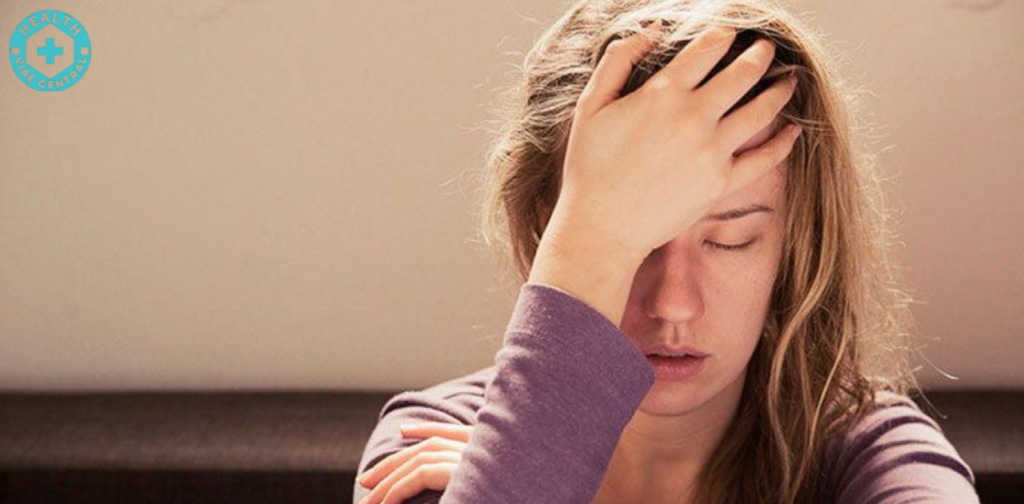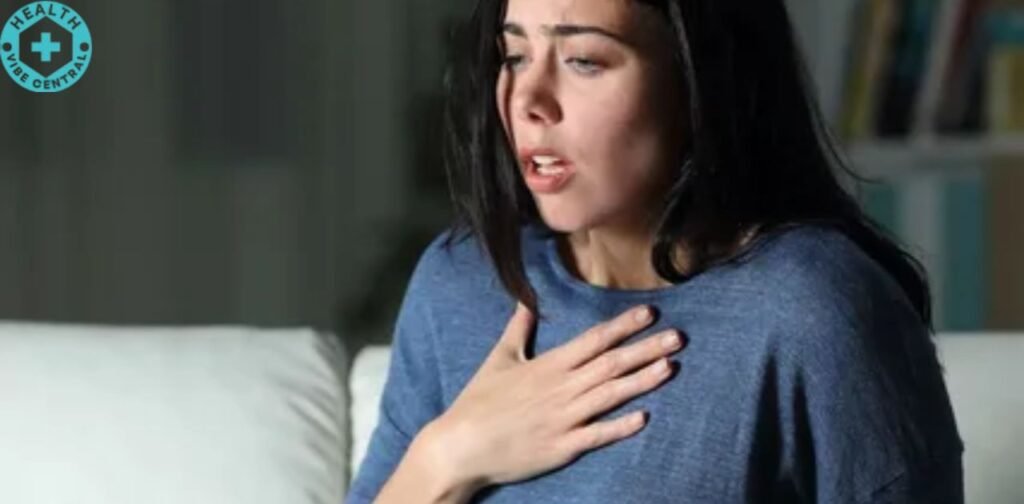
It is a known condition that approximately millions of people experience in some form and in different stages of their lives. While occasional anxiety is perfectly natural and is experienced by everyone at some point in life, chronic anxiety can cause anxiety disorders that interfere with daily functioning, stress personal relationships, and decreases quality of life.
In this article, you will learn the meaning of the reasons behind it, the effects, and great strategies to help you reduce stress and regain control. We also look into other complementary treatments, changes in lifestyle and professional medical interventions that can give relief and lasting cure.
1. Understanding Anxiety: A Closer Look
Anxiety as a phenomenon is considered to be an affirmative affect that is marked by such affective states as tension, concern and fear. It can be acute as well as chronic and can be sometimes manifested with autonomic outcome as sweating, trembling or increased pulse rate.in its ordinary function is thought to be a protective mechanism associated with stress or any situation that is seen as dangerous. But when it is engaging constantly or is elevated beyond the required measure depending on the occasion, then it becomes an disorder.
Types of Anxiety Disorders
- Generalized Disorder (GAD): The condition whereby an individual constantly feels anxious, worried or tense; beneath normal stress levels.
- Social Anxiety Disorder: A specific aversive stimulus being the fear orabout being judged or embarrassed in social situations.
- Panic Disorder: Episodic acute attack characterized by severe with or without chest pain, palpitation, shortness of breath or faintness.
- Phobias: Persistent and intense fear of an object or a situation that is not realistic, for example, fear of heights, flying, animals etc.
- Separation Disorder: Phobia: especially the fear of being apart from family and friends.
2. The Root Causes of Anxiety
People have different types of where the causes may be unique or may be related to other disorders. It might be that there is a genetic predisposition to the condition or its attributed to environmental factors, psychological factors and or lifestyle choices. Familiarity with what might cause makes it easier for a person to control the problem and look for proper treatment.
1. Genetic Factors
There are indications that anxiety disorders might be hereditary. If one’s first-degree relative, like a parent or a sibling, has an anxiety disorder, then one increases their likelihood of developing one, as well. There is biochemical-genetic predisposition explaining how our brains work with stress and fear; therefore, some people are more sensitive to
2. Brain Chemistry
Neurotransmitters are elements that control mood and are responsible for Serotonin, norepinephrine, and gamma-aminobutyric acid (GABA) are neurotransmitters that when out of proportion create high levels of anxiety. But DECCA study revealed that low serotonin levels were significantly associated with both depression and anxiety disorders.
3. Environmental Stressors
Stressful life transitions involve changes such as, relocating to a new town, beginning a new job, or breaking up. Stress, which may span for instance, a financial crisis, an extended illness or a strenuous job, can cause disorders to develop. Any form of abuse physically, sexually, or emotional, or any form of violence, particularly in childhood, contributes to poor mental health.
4. Personality Traits
General personality factors such as perfectionism, high sensitivity, and the ability to analyse situations may render individuals prone to anxiety. In certain circumstances, anxiety is somewhat more likely people who are more cautious or introverted, and people focusing on their self’ weaknesses.
5. Medical Conditions
It is seen that a number of underlying medical conditions like thyroid disorders, heart disease, diabetes, chronic respiratory disease can act as a cause or aggravating factors for anxiety. Some medications and treatments also cause as one of their possible consequences in which a person should see a doctor if the symptoms appear after starting a new therapy.
3. Recognizing the Symptoms of Anxiety

t is also important to note that the level of can vary from very mild to rather severe. Occasional faint and slight nervousness are quite usual, but anxiety disorders include persistent signs that hinder one’s functioning.
Emotional Symptoms:
- Excessive Worrying: Excessive and relentless thinking about daily occurrences that are not dangerous in any way.
- Restlessness: Basically, insomnia refers to an inability to ‘sleep easy’ or comfort, which can also be denoted by frequent feeling of being alert, or always being jittery.
- Irritability: This means that where there is a normal level of temperance and patience, this can now be upset easily by such inconveniences.
- Difficulty Concentrating: Difficulty in concentration and specifically when there is pressure towards achieving the task.
- Fear of Losing Control: Apprehension together with irrationality every so often or constantly, being obsessed with death or death like situations.
Physical Symptoms:
- Racing Heart: A rapid or uneven pulse, which may be manifested during the stressful situation or a panic attack.
- Trembling or Shaking: Tremor which is an involuntary shaking especially of the hands or legs as well as muscle rigidity.
- Shortness of Breath: Shortness of breath; the patient may hyperventilate during a period of or panic.
- Insomnia: Prolonged inability to fall or to return to sleep, often because of the mind’s activity or bodily unrest.
- Fatigue: Being tired and exhausted, this is even after you woke up after a sound sleep at night.
- If you get these symptoms repeatedly, you should consult a doctor and look for an effective antianxiety medication.
4. The Impact of Anxiety on Daily Life
Anxiety does not only affect your mind but also your body, social life and work. Knowledge of these effects can assist you to deal with stress more properly exhibiting
1. Physical Health Consequences
- Fear, as it is known to be a phenomenon that acts with time, makes a negative impact on people’s bodies. Chronic stress and worry increase levels of the hormone cortisol, which can lead to various health issues, including:
- People who experience stress or anguish develop high blood pressure because of which they run a higher chance of developing heart complications in the future.
- Anxiety leads to digestive Problems through the emergence of three symptoms which may include Irritable bowel syndrome (IBS) and acid reflux as well as other digestive disorders.
2. Social and Relationship Struggles
In the social interaction and relationship, plays a role of hindrance or an impediment. Specifically, it may lead individuals to avoid social setting, meeting, event for fear of embarrassment or scrutiny. Long term, such a process results in loneliness or rejection from friends, family and even partners might be experienced.
3. Professional and Academic Challenges
Anxiety can interfere with work or school tasks including focus, judgement, problem solving, and overall efficiency. People with performance may avoid speaking in public, avoid examinations or fail to meet important deadlines, hence missing opportunities or doing a poor job. Furthermore, those anxious ailments lead to truancy which certainly affects career opportunities and job security.
5. Effective Strategies to Manage Anxiety

Multiple strategies exist to handle anxiety which includes both life-style alterations and therapeutic approaches whose effectiveness has been validated by research for symptom reduction and mental health advancement.
1. Cognitive Behavioral Therapy (CBT)
Multiple forms of research demonstrate CBT is among the most effective therapies for treating disorders. The initial stage of CBT requires detecting anxiety-related thinking patterns to implement subsequent solutions for fixed problems. During CBT patients must replace their existing unbalanced negative thoughts with reasonable logical alternatives thus decreasing the occurrence of anxiety.
2. Mindfulness and Meditation
The practice of mindfulness enables people to stay focused on the present moment as it helps them prevent thoughts about either future uncertainties or past occurrences. Several relaxation techniques including deep breathing and progressive muscle relaxation with guided meditation produce effective calms for the mind while lowering stress.
3. Exercise and Physical Activity
To fast: In this case, exercising is very helpful because it stimulates the production of endorphins in the body which are natural ways of reducing stress. Weather it is a planned exercise such as taking a brisk walk in the morning, a Yoga session in the evening or a vigorous workout, exercise minimizes anxiety caused by lack of sleep, low energy levels and general sickness
4. Limiting Stimulants
This is taking caffeine, nicotine, and sugar for example, all of which tend to worsen symptoms. Removing or minimizing these products from your diet will assist to maintain the internal emotional state and lower . And avoid foods that can harm your brain but rather settle for meals with a balanced diet of whole grain foods, fruits and vegetables.
5. Building a Support Network
You will get someone to open up to and share ideas with such as a friend, relative or counselling psychologist. Other sources should include support groups or therapy groups of people with anxiety since they can relate with your situation.
6. Healthy Sleep Habits
And, sleep is one of the best ways to avoid Anxiety and sleep are inversely related and bad sleep can cause or exacerbate an anxiety disorder creating a cycle of insomnia and worry. By going to bed at the same time, getting involved in a relaxing activity before night, and avoiding light-emitting devices, peoples can improve night’s sleep.
7. Journaling
Hence, putting into writing, what one is thinking or feeling can go along way towards combating . Writing in the diary may help to vent the emotions, to focus on the problems and to recognize some triggers that provoke anxiety. It is useful to vent out the stress and contribute towards enhancing mental health.
6. Natural Remedies for Anxiety Relief
- Five herbs have been commonly employed to alleviate symptoms of anxiety as continues in the following section. It is essential to understand that using herbs should not be a substitute for professional medical care but it may complement it. Some popular options include:
- Chamomile: Those who suffer from gastritis, insomnia and mild symptoms can find relief in chamomile tea or supplements.
- Valerian Root: Valerian Root functions effectively as a sleeping aid but additionally operates as an agent that calms the nervous system so it treats both stress and anxiety and night owl symptoms as well as insomnia.
- Ashwagandha:Ashwagandha aids the body in adapting to stress by lowering cortisol and increasing serotonin to minimize stress effects.
- Lavender: The latest studies show that lavender essential oil reduces stress when applied to the skin and through smell.
2. Aromatherapy
The practice of mindfulness enables people to stay focused on the present moment as it helps them prevent thoughts about either future uncertainties or past occurrences. Several relaxation techniques including deep breathing and progressive muscle relaxation with guided meditation produce effective calms for the mind while lowering stress.
3. Acupuncture
Through thin needle insertion into certain body points acupuncture functions as ancient Chinese medicine to restore bodily energy balance. According to some research findings acupuncture helps lower stress through activation of the body’s native relaxation pathways. Acupuncture leads to enhanced sleep quality while concurrently minimizing tension in addition to its beneficial effects.
4. Diet and Nutrition
Individuals who face mild anxiety can handle it themselves yet they should consult their doctor if the symptoms worsen and prevent normal functioning. The treatment options provided to patients depend both on the diagnosed condition of their disorder and the severity level of their symptoms
7. Professional Treatment Options for Anxiety
Mild anxiety can be managed by the person experiencing it but when it becomes severe and begins to impact on functioning, it is time to seek advice from the doctor. In case of any disorder, different effective treatment approaches are offered depending on the patient’s condition and intensity of the symptoms.
1. Psychotherapy
Psychotherapy also known as talk therapy entails finding the source of and developing ways to manage with an authorized therapist. The types of psychotherapy are many, but the most ideal for anxiety disorder is the Cognitive Behavioral Therapy (CBT). CBT enables an individual to identify the negative thinking pattern and dispute it and replace it with a more constructive pattern of thinking.
2. Medication
The doctor may occasionally instruct patients with anxiety disorders to take medication. Doctors utilize various medical substances as part of anxiety treatment programs including the following:
The selective serotonin reuptake inhibitor class (SSRIs) contains Prozac Zoloft along with Lexapro as members that boost mind serotonin levels for anxiety relief.
The fast-acting benzodiazepines Xanax, Ativan, and Valium prove effective for treating acute anxiety except doctors avoid long-term prescriptions because using these drugs can make the body develop dependence.
Beta-blockers provide hypertension treatment so they can simultaneously reduce the physical symptoms of shaking and irregular heartbeat in patients.
You need to check with a healthcare provider to select your treatment medication and find out the correct dosage and potential body reactions to the medicine.
3. Support Groups
Anxiety sufferers should connect with a support network that consists of other individuals with anxiety. Hearing from others who share similar difficulties provides comfort along with firsthand experience of dealing with these challenges.
Anxiety levels of a person change noticeably when activities which were once done as part of daily routines now become modified versions. Several lifestyle practices can preserve mental well-being through their implementation.
Conclusion: Returning Point of Mastery of Anxiety
Anxiety is a tough psychopathological state representant, which often impacts a lot people’s everyday functioning. Still, if proper approaches to injections are applied, and people receive corresponding support, it is easy to become anxious but happy. Getting past anxiety can be achieved via medication, improving one’s lifestyle, use of organic products or by a combination of the three.
When you have anxiety, be sure to listen to it, learn more about what treatment is available to you, and get help when you need to. By leaving no room for unhealthiness and keeping small and constant changes to your everyday schedule, one can fight stress and take control of one’s mental and emotional health.